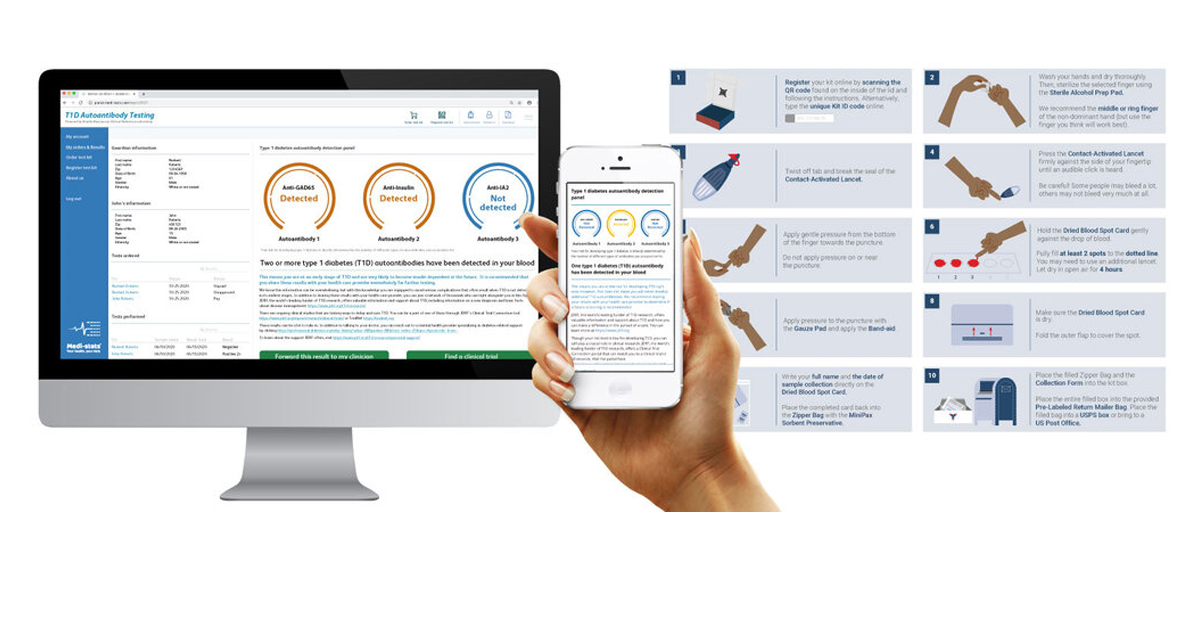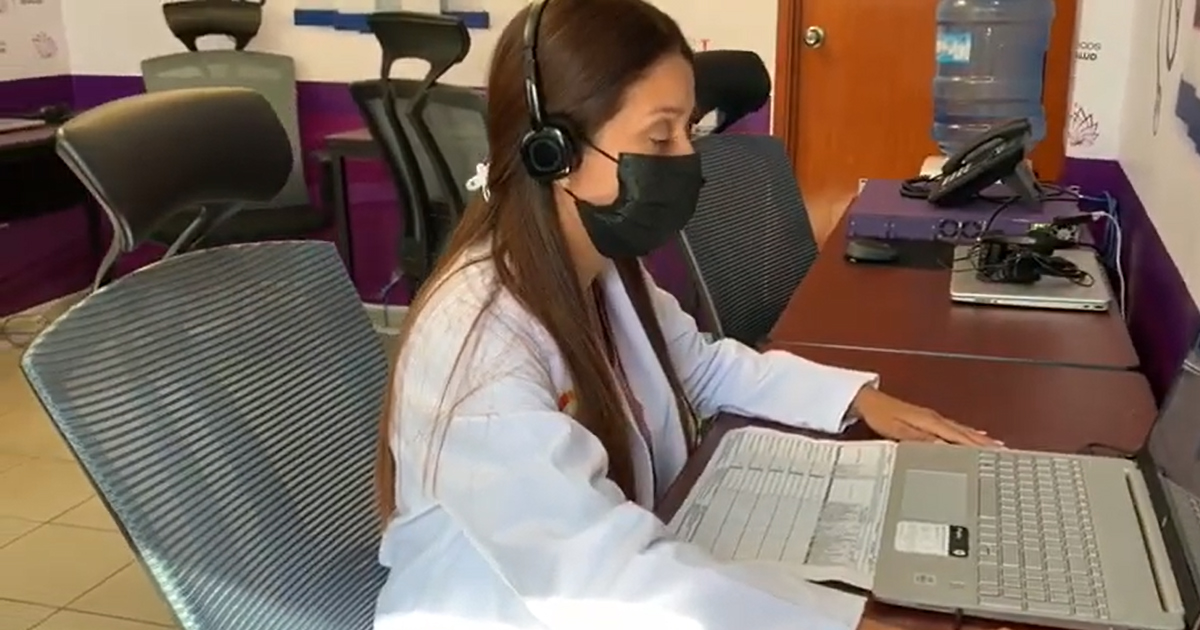A British-based company specializing in Digital Health developed an interactive support portal for patients and healthcare professionals to detect possible early signs of type 1 diabetes.
Diabetes is a group of metabolic conditions characterized mainly by little or no insulin production in the body. Type 1 diabetes (T1D) is different from type 2 diabetes mellitus because the presence of autoimmune markers that cause the destruction of the cells responsible for insulin production. It is also the most common chronic disease in the pediatric population (Maahs, West, Lawrence, Meyer-Davis, 2011).
Medi-stats, since 2019, has developed an interactive platform to support the detection of early signs of T1D, which helps patients to identify and monitor their antibodies. This information is of paramount importance to know the likelihood of a six-month-old patient to have T1D later in life.

Medi-stats teamed up with JDRF, one of the world's leading non-profit T1D research organizations, which also offers services to the T1D community. Their goal is to find a cure for the condition, but they also specialize in advancing breakthroughs that make life easier for people with the condition.
“T1D starts long before insulin dependency, families will be able to prepare, develop a plan for further monitoring with their doctor and hopefully avoid serious and sometimes life-threatening conditions, such as diabetic ketoacidosis (DKA), along with possible hospitalization that can be more common at the onset of the disease”, as Medi-stats and JDRF explained.
Through a test kit the patient will need to obtain small blood samples from the fingers and send them to JDRF's laboratory. Subsequently, the results will be uploaded to the web portal and the user will be able to consult them and receive an explanation and interpretation of the results through his or her account. Additionally, it indicates the steps to follow and the next steps on the web platform.
Severe DKA complications can be life-threatening for the patient. That is why the application of this screening system has great benefits, such as reducing the risk of hospitalization by knowing what the first symptoms would be like and having more time in advance to establish contact with a specialist.
“Autoantibody markers appear well in advance of symptoms, and pilot studies have shown that screening for these markers can reduce the rates of often-deadly diabetic ketoacidosis at diagnosis, reduce medical complications and potentially improve patients’ quality of life”, Medi-stats explained.
MEDI-STATS
https://www.medi-stats.com/diabetes
JDRF
https://www.jdrf.org/t1d-resources/t1detect/
HEALTH TECH DIGITAL
OXFORD UNIVERSITY PRESS





